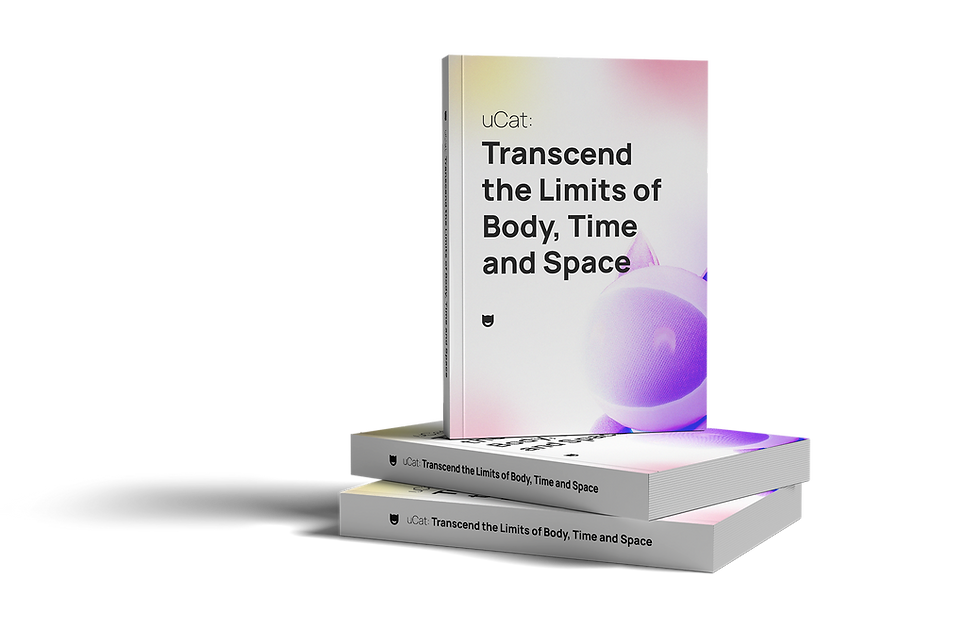LONDON, Thursday, Feb. 29, 2024 – Today marks the day uCat releases a world-first commercial application for Neuralink-like high bandwidth Brain-Computer Interfaces (BCIs).
BCIs could provide hope for the millions of motor-impaired individuals seeking to restore their self-expression; to talk and move again. Yet the announced BCI applications underutilize the technology.
"Building a rocket engine only to strap it onto a lawnmower hardly makes for a commercial success," says Sam Hosovsky, CEO of uCat. "Why control a cursor and spell letters when you can decode attempted speech at nearly conversational rates and movements with dozens of degrees of freedom?"
A world first: Today, the uCat team sets the record straight by publishing their ebook
'uCat: Transcend the Limits of Body, Time, and Space.' It comprehensively articulates the BCI frontier, its expected clinical outcomes, and how to exceedingly satisfy them with cutting-edge Virtual Reality (VR) and AI.
"VR can improve the BCI experience," suggests Ian Burkhart, a seasoned clinical trial participant who was left paralyzed after a spinal cord injury. "VR also adds a fantastic ability for individuals who may be tethered to a device but can use VR to go out into the world. You don’t feel like you’re tethered to the wheelchair, BCI device, or VR device. You can feel like you’re actually there."
Show, don’t tell: uCat further reveals a VR experience built explicitly for first-generation BCI users who strive to reclaim their speech. Nestled in a naturally serene virtual landscape, it simulates typical calibration exercises, then increases the difficulty until the user can freely converse with uCat herself: no spelling boards required.
Lastly, uCat brings together AI experts across domains–joining forces to improve open-source BCI decoders. "Open-sourcing our technology and hundreds of pages of our strategy adds much-needed transparency to the sensitive R&D of merging human and artificial intelligence," adds Hosovsky.
Despite the world of BCIs globally forecasted to hit $8.4 billion by 2032, the team at uCat sees a solution to shorten the timelines: Expressive VR avatars embodied via an AI-powered BCI. Join uCat’s mission to introduce individuals with paralysis to vibrant virtual societies where ability and appearance are only limited by one’s imagination.

About: A London-based XR startup founded in 2023, uCat blends VR, AI, and BCI into software that unleashes the potential of human thought.
Media Contact: Sam Hosovsky, info@ucat.app

Comments